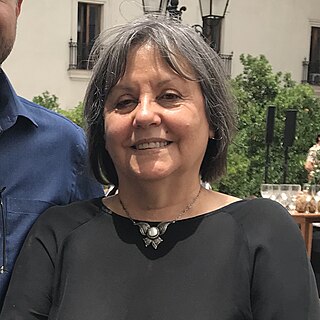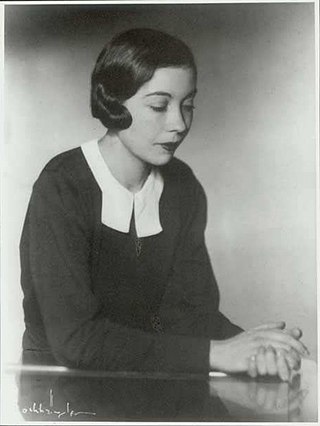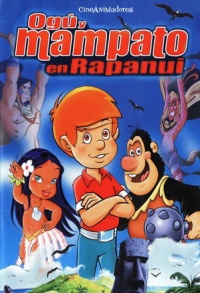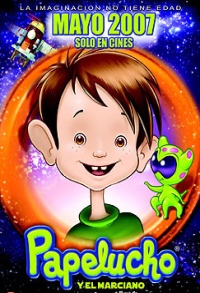
Isabel Angélica Allende Llona is a Chilean-American writer. Allende, whose works sometimes contain aspects of the genre magical realism, is known for novels such as The House of the Spirits and City of the Beasts, which have been commercially successful. Allende has been called "the world's most widely read Spanish-language author." In 2004, Allende was inducted into the American Academy of Arts and Letters, and in 2010, she received Chile's National Literature Prize. President Barack Obama awarded her the 2014 Presidential Medal of Freedom.

Octavio Paz Lozano was a Mexican poet and diplomat. For his body of work, he was awarded the 1977 Jerusalem Prize, the 1981 Miguel de Cervantes Prize, the 1982 Neustadt International Prize for Literature, and the 1990 Nobel Prize in Literature.

Lucila Godoy Alcayaga, known by her pseudonym Gabriela Mistral, was a Chilean poet-diplomat, educator, and Catholic. She was a member of the Secular Franciscan Order or Third Franciscan order. She was the first Latin American author to receive a Nobel Prize in Literature in 1945, "for her lyric poetry which, inspired by powerful emotions, has made her name a symbol of the idealistic aspirations of the entire Latin American world". Some central themes in her poems are nature, betrayal, love, a mother's love, sorrow and recovery, travel, and Latin American identity as formed from a mixture of Native American and European influences. Her image is featured on the 5,000 Chilean peso banknote.

Vicente García-Huidobro Fernández was a Chilean poet born to an aristocratic family. He promoted the avant-garde literary movement in Chile and was the creator and greatest exponent of the literary movement called Creacionismo ("Creationism").

Roberto Bolaño Ávalos was a Chilean novelist, short-story writer, poet and essayist. In 1999, Bolaño won the Rómulo Gallegos Prize for his novel Los detectives salvajes, and in 2008 he was posthumously awarded the National Book Critics Circle Award for Fiction for his novel 2666, which was described by board member Marcela Valdes as a "work so rich and dazzling that it will surely draw readers and scholars for ages". The New York Times described him as "the most significant Latin American literary voice of his generation".

Diamela Eltit is a Chilean writer and university professor. She is a recipient of the National Prize for Literature.

Mercedes Valdivieso was a Chilean writer, known since her earliest writings for the subversive nature of her texts. She was born in Santiago, Chile. She first wrote La Brecha (Breakthrough) in 1961, which is considered to be a landmark feminist Latin-American novel. This novel caused dismay from the reactionary segment of society and loud applause from the critics and is considered a revolutionary departure from the traditional treatment of the feminine role in marriage. Breakthrough is a novel that ends with the heroine's awareness that she didn't really need to depend upon a man in order to lead a fulfilling life. The book enjoyed an unexpected publishing success and went through five consecutive editions. Mercedes Valdivieso had the extreme audacity to become an innovator; she bridged the gap between romantic and domestic fiction in a society where women have been viewed as a sexless gender, icons of virtue, and depending on men to meet the necessities of life. Valdivieso also was founder and director of Adan, a men's magazine, and Breakthrough, a feminist publication, she published articles in newspapers and magazines and she gave many lectures and speeches. She taught literature at the University of Peking, at the University of Houston, at Stephen F. Austin State University in Nacogdoches, at University of St. Thomas in Houston and she was a Professor Emeritus at Rice University.
Fondo de Cultura Económica is a Spanish language, non-profit publishing group, partly funded by the Mexican government. It is based in Mexico but it has subsidiaries throughout the Spanish-speaking world.

Marcela Paz was the pen name of Esther Huneeus Ramos Falla Salas de Claro, a Chilean writer. She also used the pen names of Paula de la Sierra, Lukim Retse, P. Neka and Juanita Godoy. She was a recipient of the National Prize for Literature.
Marcela Serrano is a Chilean novelist. In 1994, her first novel, Para que no me olvides, won the Literary Prize in Santiago, and her second book, Nosotras que nos queremos tanto, won the Sor Juana Inés de la Cruz Prize for women writers in Spanish. She received the runner-up award in the renowned Premio Planeta competition in 2001 for her novel Lo que está en mi corazón. Carlos Fuentes has quoted her description of the modern woman as "having the capacity to change skin like a snake, freeing herself from the inevitability and servitude of more obsolete times."

Enrique Eduardo Lafourcade Valdenegro was a Chilean writer, critic and journalist from Santiago.
Cristián Huneeus (1935–1985) was a Chilean essayist and writer.

Ogu and Mampato in Rapa Nui, also known as Mampato: The Movie is a 2002 Chilean animated science fiction adventure film, created by Cine Animadores and executive produced by Elastic Studios, released June 27, 2002. Although the film isn't the first animated feature made in Chile, being the second after Alfredo Serey's 1921 film La Trasmisión del Mando Presidencial, it is considered the country's first "modern" animated film. The movie is based on the Chilean comics character Mampato created in 1971 for the magazine of the same name by Themo Lobos and Eduardo Armstrong, and later reprinted as the comic-book Cucalón, the story for the film being adapted from the seventh adventure in the series: "Mata-ki-te-rangui".

Papelucho and the Martian is a 2007 Chilean animated science fiction film, created by Cine Animadores and Canal 13 Films, released on 17 May 2007.

Jorge Huneeus Gana was a Chilean attorney, writer, journalist, ambassador, legislative deputy, and cabinet minister.
Lucía Gevert Parada is a Chilean journalist, writer, editor, and former diplomat to West Germany during the military dictatorship of Augusto Pinochet. She was president of the National Association of Women Journalists, editor of the Mampato supplement of El Mercurio during the 1960s, and president of the International Board on Books for Young People (IBBY) of Chile from 1968 to 1973 and 1980 to 1980. She was a founder of the latter, along with the writers Marcela Paz, Alicia Morel, and Maité Allamand, among others. She was also a participant in the founding of Televisión Nacional de Chile and the children's literature magazine Colibrí.

Alicia Morel Chaigneau was a Chilean writer, novelist, storyteller, poet, and essayist best known for her work in the field of children's literature and theater for children and puppets.

Lina Meruane Boza is a Chilean writer and professor. Her work, written in Spanish, has been translated into English, Italian, Portuguese, German, and French. In 2011 she won the Anna Seghers-Preis for the quality of her work, and in 2012 the Sor Juana Inés de la Cruz Prize for her novel Sangre en el ojo.

María José Ferrada is a journalist and writer from Chile. She has written numerous books for children and young adults in the Spanish language, and her work has been widely translated. She has received multiple awards for her work, including the Premio Academia of the Academia Chilena de la Lengua, and the Literary Prize of the City of Santiago, and her books for children have been published in several countries, including Spain, Argentina, Colombia, Brazil, Mexico, Italy and the United States, in addition to Chile. She is currently the editor of Chile para Niños, which is the National Library of Chile's digital resource center for children.














